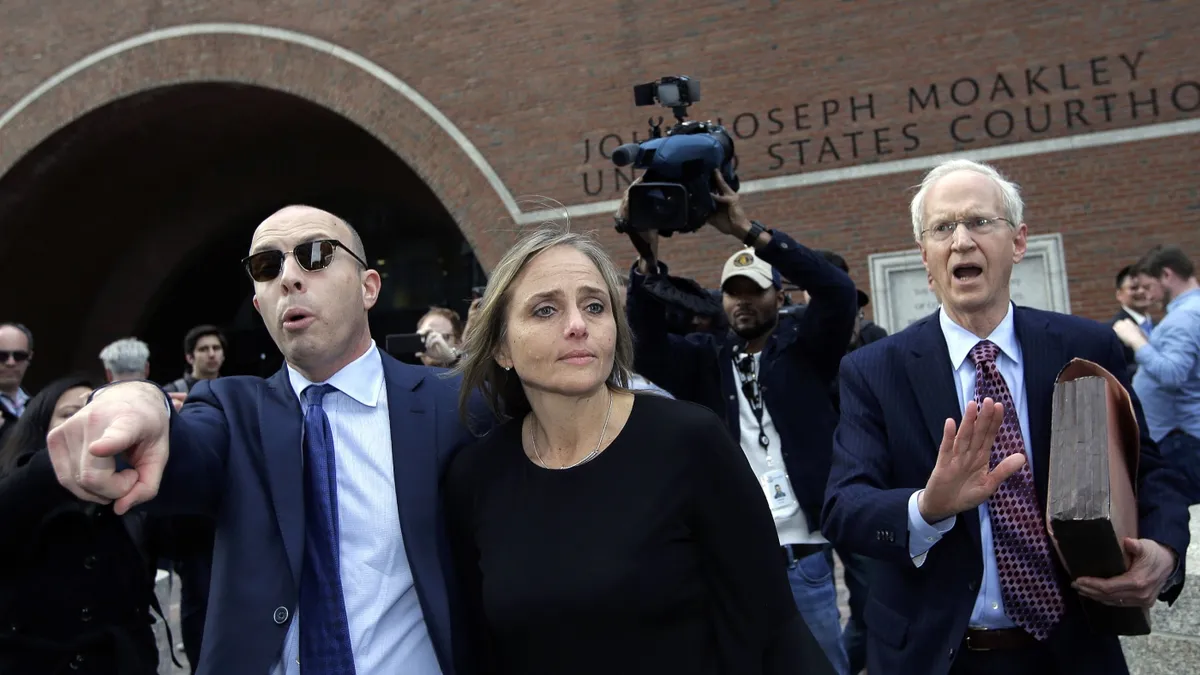
A Wisconsin judge has made headlines after pleading not guilty on federal charges related to aiding an undocumented immigrant in evading immigration authorities. The case involves Milwaukee County Judge Hannah Dugan, who denies any wrongdoing and is seeking to have the charges dismissed. This incident is particularly significant as criminal charges against judges in such circumstances are extremely rare.
In a similar case that has been ongoing in Massachusetts for over seven years, Judge Shelley Joseph faced accusations of conspiracy and obstruction of justice. In April 2018, Joseph, who was relatively new to her position, allegedly assisted an undocumented immigrant, who was facing drug charges, in escaping through a back door to avoid a U.S. Immigration and Customs Enforcement (ICE) agent waiting outside. The severity of the charges against Joseph included a potential 25-year prison sentence.
According to prosecutors, the actions of Judge Joseph and a defense attorney resulted in a deliberate attempt to thwart an ICE arrest. The situation escalated when the defense attorney proposed a plan to let the defendant exit through a basement door, which required the judge to return him to custody despite his prior release. During court proceedings, recorded conversations reveal that Judge Joseph expressed concern over ICE's presence, asking whether they could detain the defendant further. The plan allegedly unfolded after the court recording was turned off, allowing the defense attorney to communicate the escape plan to the judge.
Following her indictment, Judge Joseph was removed from her position and placed on unpaid leave. However, she successfully challenged this decision in the state Supreme Court, leading to her pay being reinstated. The charges against her were eventually dropped after President Joe Biden took office, which led to a new U.S. attorney dropping the case. Nonetheless, the Massachusetts Commission on Judicial Conduct continued to investigate her actions, resulting in a forthcoming trial-like proceeding to determine whether she engaged in misconduct.
Opinions on Judge Joseph's case vary greatly. Former federal judge Nancy Gertner argued that the charges against Joseph were politically motivated and that her actions stemmed from inexperience rather than a deliberate attempt to undermine federal law. Gertner emphasized that judges have the right to manage their courtrooms without federal interference, asserting that the presence of ICE agents in court could intimidate defendants and witnesses.
On the other hand, critics like Jessica Vaughan from the Center for Immigration Studies argue that judges must uphold the law and not assist individuals in evading justice based on their immigration status. Vaughan contends that such actions can create a double standard, undermining public confidence in the judiciary.
The cases of Judges Dugan and Joseph highlight a broader debate regarding the intersection of state judicial authority and federal immigration enforcement. As courts grapple with these complex issues, the necessity for clarity on how judges should navigate their responsibilities without federal overreach remains a pressing concern.
As the legal proceedings continue, the implications of these cases will likely influence both public opinion and judicial practices regarding immigration enforcement and the rights of undocumented individuals in court settings.